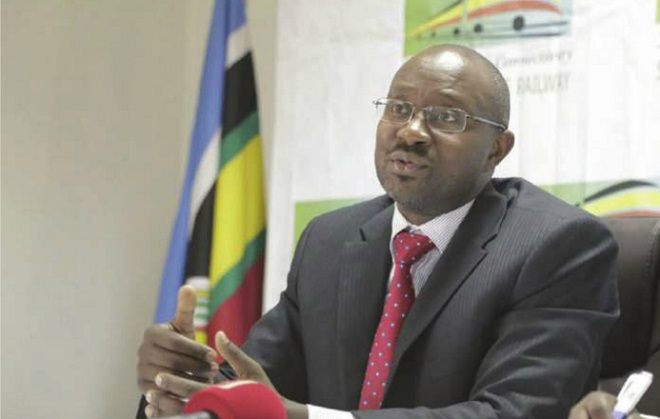
Kyamugambi’s defence
The SGR project recently appeared to be gathering speed when Museveni met his Kenyan counterpart in Nairobi at the end of June during the 14th Summit on the Northern Corridor Integration Project on June 27 and the two leaders made the right noises.
But like most big infrastructure projects in Uganda that inevitably end up on Museveni desk, the SGR remains a centre of jostling by competing companies, their commission agents, presidential aides, members of parliament and even technocrats who are all looking at a slice of the bounty.
These bombard Museveni with a steady stream of new information all the time and, since he is not an expert in railway construction, the President tends to delay decision making. The result is endless postponement of project milestones, confusion, and uncertainty over when implementation of the project which has been 20 years at the planning stage will start.
Kyamugambi, the now booted former head of SGR, appears to be the latest victim of the jostling.
A civil engineer, who previously worked with the National Planning Authority (NPA), Kyamugambi combined national planning experience and engineering expertise and was handed the job in January 2016.
Knowing the complexity of interests around such projects, Kyamugambi had reportedly refused to take the job when Museveni first gave it to him. Finally, he accepted the offer.
At the time, Kyamugambi also happened to be one of the most knowledgeable technocrats, having been part of the initial processes on the project even before the project was handed to CHEC.
Kyamugambi was handed the job when the government had already agreed the US$1.95 billion contract price with CHEC.
At that rate, the Ugandan SGR would cost $7.3 million per km.
That is comparable to what Kenya paid for it recently completed Nairobi- Mombasa stretch.
Kyamugambi was convinced that Uganda is getting a good deal despite a December 2016 report by members of a Parliamentary Infrastructure Committee, which concluded Uganda’s cost was inflated when compared to Ethiopia and even Kenya’s.
Kyamugambi’s team reacted by defending their figures. They argued that in railway construction terminology, there is a difference between “route km” and “track km” which the MPs missed. Track km includes the tracks on stations and passing loops. Route km is only the distance from point A to B.
Kyamugambi’s team said the MPs distorted figures when they divided the cost by route km for Uganda and by track km for Kenya.
The MPs also reportedly included the cost of rolling stock and locomotives in the Uganda cost and excluded it in Kenya.
Kyamugambi’s team argued that the cost should also factor in speed of trains, safety, quality of works, and construction peculiarities including gradient and curve radius.
Apparently, while Uganda has 24km of bridges, the Dar es Salam to Morogoro stretch in Tanzani is semi-arid flat terrain, with two bridges and no swamps. Uganda has 53km of swamps with a hilly terrain.
On safety, for instance, CHEC offered to construct a line that would limit accidents. This, officials noted, required that there are no level crossing where the train meets any road at the same level or where a vehicle can possibly roll off a bridge and land on the train.
Apart from this, the CHEC design has automatic signaling which removes human error. The train is computerised with one control room, with train drivers handling only emergencies.
In the Uganda-Kenya comparison, Kyamugambi’s team argued that Uganda’s cost is cheaper because the Uganda railway will use electricity while Kenya’s will use diesel, which is more expensive. Without the electric component, Uganda would be $6.9m.
As always, there were also reports of personal conflicts between individuals. Dennis Sabiti, the chairman of Parliament’s Infrastructure Committee which wrote the report was said to have an axe to grind with the Works Permanent Secretary, Alex Bwangamoi.
Sabiti, who had been working as a commissioner in the Works Ministry and did the due diligence of CHEC.
Apparently, he had asked the Works ministry to sponsor a group of MPs for a two weeks trip to Ethiopia, Kenya and China and did not get it. None of this could be proved and was easily dismissed.
 The Independent Uganda: You get the Truth we Pay the Price
The Independent Uganda: You get the Truth we Pay the Price


